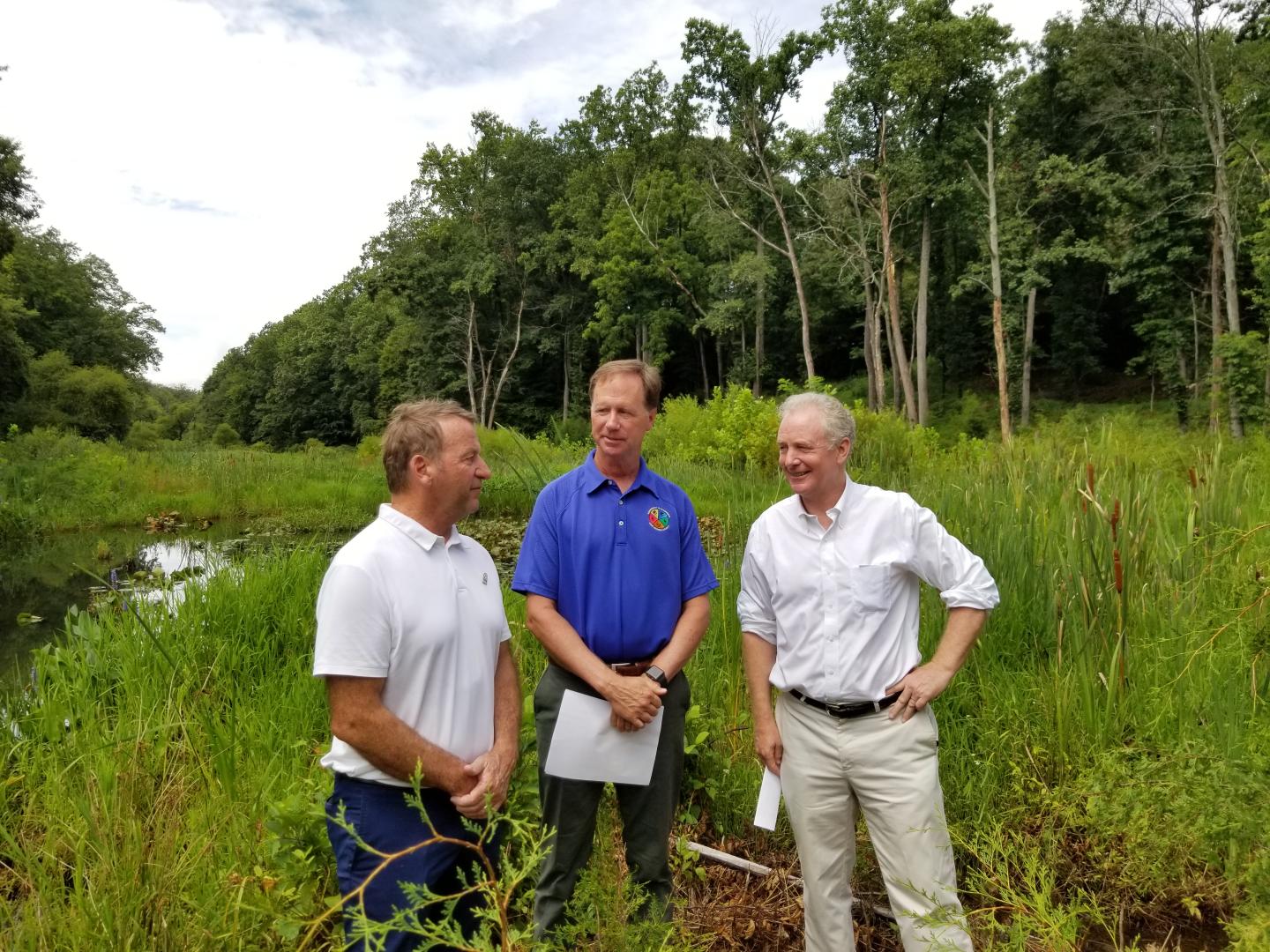By Steuart Pittman and Gavin Buckley
The Chesapeake Bay is a glorious gift of nature that has provided human beings with food, transportation, recreation, and inspiration for thousands of years. Our efforts to restore health to this gift will succeed only if its magic is experienced by more of today’s and tomorrow’s voters.
The general public, however, has very little access to the Bay, particularly from the beautiful shores of Annapolis and Anne Arundel County. Our few waterfront parks become full on sunny weekends, and the rest of the coast is closed to the public. We need more public water access - a lot more.
That’s why both of us are so supportive of an offer by National Park Trust (NPT) to open for public access a 300-acre gem called Holly Beach Farm and launching the Chesapeake National Recreation Area.
Holly Beach Farm is adjacent to the old ferry slip just south of the Bay Bridge on the Anne Arundel side. It was a horse farm - with pastures, wooded areas, a freshwater pond, and beautiful historic buildings - until it was acquired twenty years ago with $8 million of government money for public access, using Program Open Space, National Park Service, and Transportation Enhancement funds.
In 2001 Holly Beach Farm was deeded to the Chesapeake Bay Foundation (CBF) by Maryland Board of Public Works based on a commitment that the property would be “for public access so people can enjoy it.” Today, Holly Beach Farm is closed to the public.
CBF has done outstanding work elsewhere in the twenty years since, including the establishment of educational centers on protected land, but has not been able to invest adequate resources in Holly Beach Farm. Historic buildings are crumbling, invasive vines are strangling specimen trees, and Anne Arundel County had to step in with public funds to protect the farm’s shoreline.
We don’t blame CBF. The deed to Holly Beach Farm came with no operating funds, and pressure from neighbors to limit public access was intense.
Enter National Park Trust, the nonprofit organization that acquires and protects land for eventual management by our National Park Service. On October 1, its Board of Trustees voted unanimously to pursue a vision for Holly Beach Farm that is set forth in a twenty-two page proposal that can be found on the organization’s website under park preservation. It’s a fascinating look at the current condition of the property and how it could become both a nature preserve and an inspiration to visitors.
If NPT and CBF agree on a transfer of the property or a shared use agreement, Holly Beach Farm can become not only the crown jewel of the Chesapeake National Recreation Area (CNRA), but also a launch site for a network of electric ferries that promise a new mode of public transit between Annapolis, Baltimore, and important sites on both sides of the Bay. Senator Van Hollen has legislation drafted to create the CNRA, but is waiting for the green light on the right piece of land as its gateway.
As is often the case when opening land to public use - even the low-impact use proposed by NPT - not everyone is onboard. There is a handful of properties adjacent to Holly Beach Farm whose owners have allegedly offered an arsenal of carrots and sticks to prevent the land from being open to the public. We don’t know these folks, but they are said to be very wealthy, politically influential, and well-represented legally, leaving the board of the CBF with little choice but to continue restricting access.
The solution is simple. The state and federal officials who oversee the public programs that acquired this land must insist on public access. They’ve done exactly that in similar situations, and should be brave enough to do so here. That protects CBF from the neighbors’ lawsuits and allows its leadership to do the right thing.
Before voting to deed the land to CBF in 2001, Comptroller William Donald Schaefer said, “Watching the state sometimes after they acquire land, they put such restrictions on it that you can’t get near the water…I hope you won’t do that to this piece of land.”
Now is the time to fulfill the commitment made to that wise old man twenty years ago. Let’s do it for the taxpayers who bought the land, and let’s do it to create tomorrow’s Bay advocates.
